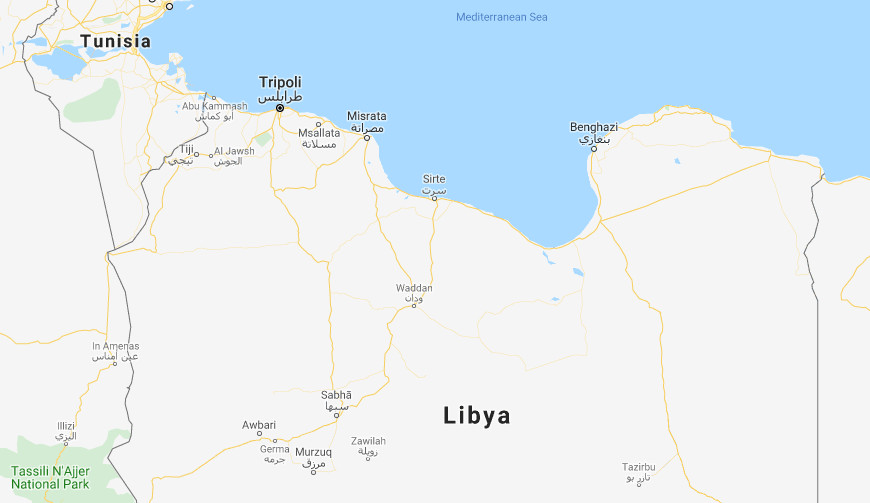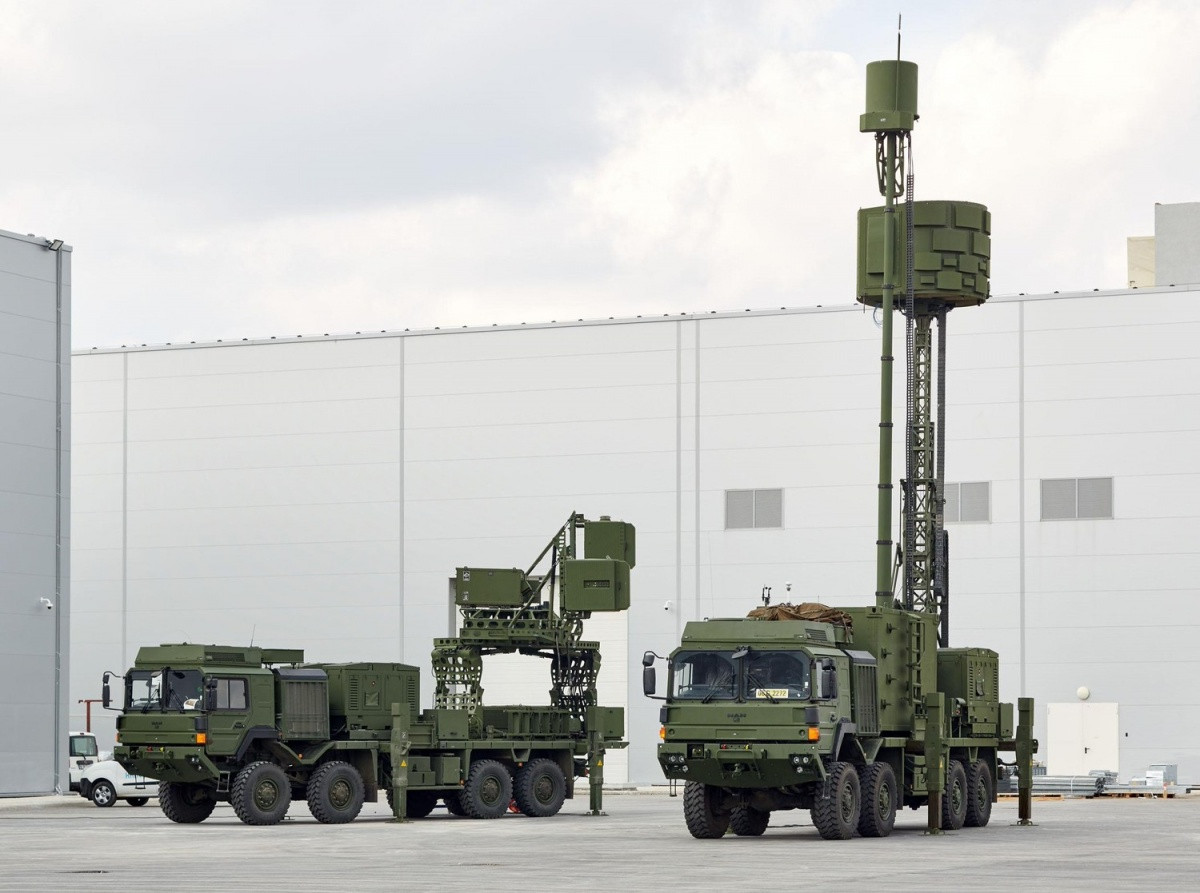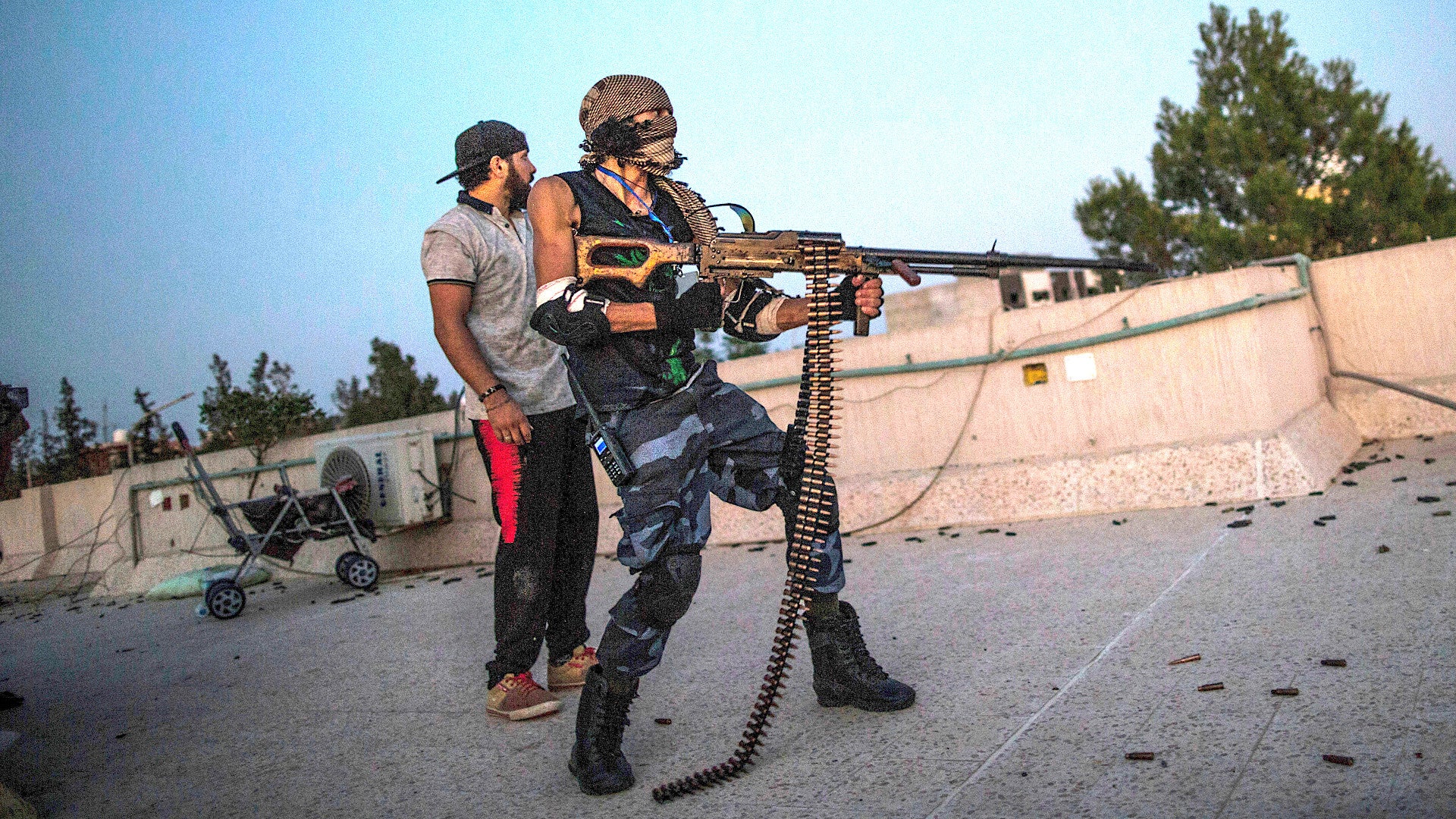Turkish President Recep Tayyip Erdogan has publicly acknowledged that his country intelligence operatives have already been actively engaged in Libya a day after formally announcing plans to deploy Turkish troops to that country to support the internationally-recognized government in Tripoli. This comes as forces loyal to rogue General Khalifa Haftar appear to have taken control of the city of Sirte along the central Libyan coast. Haftar says authorities in Tripoli are illegitimate and has the backing of the United Arab Emirates, Egypt, and Russia, among others.
Erdogan said that members of Turkey’s National Intelligence Organization, also known by the Turkish acronym MIT, were working in Libya during a ceremony at the intelligence agency’s new compound in Ankara on Jan. 6, 2020. This is hardly surprising given that Turkey has been actively sending weapons, ammunition, and other military assistance to the U.N.-backed Government of National Accord (GNA) in Tripoli since at least May 2019. On Jan. 5, Erogdan had said in a televised interview that Turkish military forces would also be heading to Libya to support the GNA.

“There will be an operation center [in Libya], there will be a Turkish lieutenant general leading, and they will be managing the situation over there. [Turkish soldiers] are gradually moving there right now,” Erdogan said on CNN Turk on Jan. 5. “Right now, we will have different units serving as a combatant force.”
Erdogan added that Turkey’s deployment was to “to support the legitimate government [of Libya] and avoid a humanitarian tragedy” and “not to fight.”
Turkey’s parliament authorized Erdogan to deploy Turkish forces to Libya in support of the GNA on Jan. 2. That vote followed a formal request from Libya’s Prime Minister Fayez Al Sarraj. In November 2019, Erdogan and Sarraj had signed a deal covering a range of security and other issues, which included provisions for a Turkish military deployment, if Libyan authorities asked for one.
Erdogan did not elaborate on the size or composition of the Turkish forces heading to Libya or the timetable for their arrival. There are unconfirmed reports that the deployment, at least initially, could be small, perhaps no more than 50 personnel, primarily for special operations forces units, tasked with training and advising GNA forces and otherwise coordinating Turkish assistance. This could include overseeing the delivery of more advanced military hardware, such as electronic warfare systems, and teaching Libyan forces to operate them.
There have been specific claims that Turkey could deploy KORAL road-mobile electronic warfare jamming systems, which seems odd given that these are ostensibly designed to attack hostile radars. Haftar’s Libyan National Army (LNA) does have air defenses, including some number of Russian-made Pantsir-S1 short-range air defense systems, reportedly obtained via the United Arab Emirates, as well as older Soviet-era S-125 and SA-6 systems inherited from the previous regime of dictator Muammar Gaddafi. How functional the LNA’s S-125s and SA-6s, or the radars typically associated with them, are is unclear.

However, in October 2019, Turkish authorities said that they had deployed KORAL as part of the country’s intervention into Northern Syria, which was aimed at Kurdish groups that have virtually no air defenses. This raises the possibility that KORAL may have broader functionality for jamming other target sets, including communications and other emitters, such as line-of-sight drone control links, or has useful direction-finding capabilities that could geolocate enemy forces by zeroing in on their radiofrequency emissions.
Tools to counter unmanned aircraft, in particular, could be very valuable to the GNA. Drones have become a major feature on both sides of the Libyan conflict, for carrying out surveillance and reconnaissance, as well as strikes.
Turkey has already notably supplied the GNA with a number of Bayraktar TB2s, which can carry small munitions, and work has been ongoing for weeks now on the construction of a new airstrip near Tripoli, curiously sandwiched between apartment blocks in a residential development, which looks well suited to supporting drone operations. You can read more about this site in this past War Zone story. With regards to Turkey’s forthcoming military deployment, its possible that Turkish advisers might find themselves directing GNA drone operations, or simply flying additional unmanned aircraft themselves, as well.
Manned aircraft and helicopters do remain an important component of the conflict on both sides, as well, and LNA combat jets reportedly targeted the new airstrip outside of Tripoli on Jan. 3. An attack on a GNA military academy in Tripoli, which authorities there blame on another LNA airstrike, killed at least 28 people, as well.
Haftar’s forces have denied involvement in the strikes on the academy, raising the possibility that one of the LNA’s foreign benefactors may have been responsible. There have been reports in the past that the United Arab Emirates and Egypt have conducted their own airstrikes against the GNA. This would make sense given the difficultly both the GNA and LNA have had in operating and maintaining their own already small fleets of combat aircraft, as well as the combat losses they have suffered.
Beyond Turkey’s formal military deployment and military assistance to the GNA, authorities in Ankara have also facilitated the deployment of groups of Turkish-backed Syrian forces to Libya in the past week. Individuals who have agreed to go fight in Libya have reportedly received significant monetary incentives and the promise of Turkish citizenship. The Turkish intelligence operatives that Erdogan says are in Libya could well be coordinating the activities of these Syrian groups among their other duties, such as intelligence sharing with the GNA.
In the meantime, while Haftar’s LNA has, so far, found itself unable to capture Tripoli in its latest offensive aimed at the Libyan capital, its forces have now wrested control of the city of Sirte and outlying areas, including the nearby Ghardabiya Airbase, from the GNA. ISIS-affiliated terrorists in Libya notably overran Sirte in 2016, prompting an American military response in support of GNA-aligned forces.
The push into Sirte was reportedly enabled in part by the defection of an armed force known as the 604th Infantry Battalion, which had been ostensibly aligned with the GNA, but belongs to a separate Libyan faction referred to as the Madkhali groups. Madkhali militias have fought for both the GNA and the LNA, as well as other entities vying for control of the country. Images suggest that some of the factions that took part in the operation have been displaying the green flag of Gaddafi’s defunct regime. The long-time dictator was born near Sirte and was killed in the city in 2011 following a U.S. and NATO-led air campaign.
The loss of Sirte is a significant blow to the GNA and is an important gain for Haftar’s LNA, eliminating a nagging threat to his forces’ northern flank that sits in a strategic location along the country’s central coastline. The operation to take the city follows the rogue Libyan general’s public calls for increased support for his faction in countering Turkey’s growing involvement in the conflict and prevents Turkey from reinforcing GNA positions there now.
The GNA does remain in control of Misrata, roughly halfway between Sirte and Tripoli, but LNA forces control much of the surrounding area there, as well. How the introduction of Turkish forces does or doesn’t alter the balance of power in Libya now remains to be seen, but the primary focus for the GNA would now seem to be in ensuring that it remains in control of Tripoli and Misrata, if nothing else. The injection of fresh Turkish-backed Syrian forces may also lead to new GNA offensives in the near future.
Uncertainty remains the word of the day in Libya, but it’s clear that the conflict there is only set to go in new and more complicated directions in the very near future.
Contact the author: joe@thedrive.com
